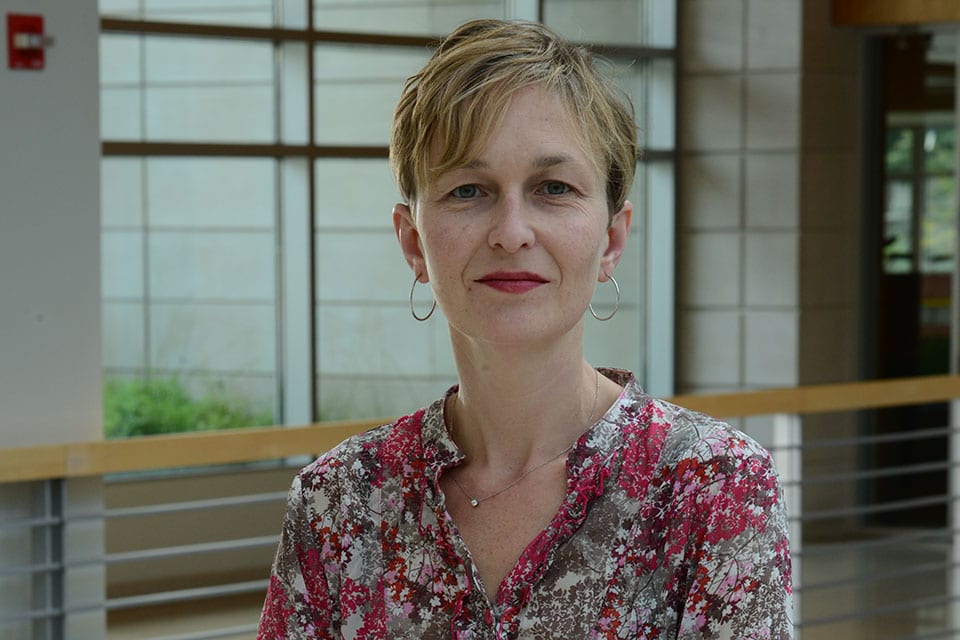The Path to Better Negotiations May Start at the Dinner Table – Chicago News

Let’s explore the most interesting stories to emerge from Chicago business schools this week.
Which Gold Medalists Do We Tweet About? Liberals and Conservatives Differ – Kellogg Insight
As cultural awareness about the often unrecognized contributions of historically disadvantaged groups continues to grow, Northwestern University Kellogg School of Management professor Nour Kteily hypothesizes that the more people prioritize social equality, the more they might actively promote the accomplishments of women and people of color.
Kteily notes, “Political liberals have a natural affinity for targets that belong to groups that they see as socially disadvantaged, and a motivation to raise these groups’ position in society. Given this, we reasoned that they would want to emphasize the good things that those who belong to groups that are otherwise overlooked are able to do.”
His study analyzes which individuals are primed to consider how underrepresented groups are overlooked and observed for their likelihood to promote a black woman faculty member according to their political ideology.
“Both liberals and conservatives shift up when they read that disadvantaged minorities’ accomplishments tend to be overlooked, but the ideological difference that exists at baseline remains,” Kteily notes.
You can read more about the study here.
Gies Creates Role of Chief Disruption Officer – Gies College of Business News
The University of Illinois Gies College of Business recently announced its newest leadership position: Associate Dean for Innovation & Chief Disruption Officer. The role will assist the business school to further innovative educational practices.
Robert Brunner, a longtime professor at the university, will ensure Gies remains up to date with current trends in technology and embraces future opportunities preemptively.

University of Illinois professor Robert Brunner has been officially named the new Associate Dean for Innovation & Chief Disruption Officer at the Gies College of Business.
Jeffrey R. Brown, Josef and Margot Lakonishok Professor of Business and Dean, extolled Brunner’s qualifications:
“Professor Brunner is an outstanding thought leader with a universal view of technological innovations. [His] extensive experience and passion make him the perfect fit as our very first Associate Dean for Innovation and Chief Disruption Officer. I’m delighted that he will be taking a more prominent leadership role within our College.”
Brunner will be tasked with identifying future challenges in business and creating unique solutions. Brunner remarks, “In today’s world, you’re either part of the disruption, or you risk being disrupted. Gies College of Business is taking a proactive approach like no one else in the country. We are not business as usual and our students will benefit greatly because of it.”
You can read more about Brunner and the new position at Gies here.
Trying to Get People to Agree? Skip the French Restaurant and Go Out for Chinese Food – Chicago Booth News
Here’s a new negotiating tactic: enjoy a family-style meal with your counterpart before making your opening bid. When people in a business negotiation share not just a meal but a plate, they collaborate better and reach deals faster, according to new research from the University of Chicago Booth School of Business.
In the study entitled “Shared Plates, Shared Minds: Consuming from a Shared Plate Promotes Cooperation,” professor Ayelet Fishbach and Cornell‘s Kaitlin Woolley examine how the way a meal is served and consumed boosts cooperation. These results show that sharing meals not only helps people collaborate better, but also reach agreements faster.
Woolley and Fishbach conducted the experiment with friends and strangers. The results found that friends arrived at a negotiation agreement faster than strangers did. However, sharing plates had a significant effect for both groups.
“The degree to which a person felt she was collaborating with her partner while eating—sharing food rather than competing for that last bite—predicted her feelings of collaboration during the negotiation phase.”
Fishbach remarks, “Basically, every meal that you’re eating alone is a missed opportunity to connect to someone. And every meal that involves food sharing fully utilizes the opportunity to create that social bond.”
You can read more about the research here.
Northwestern’s Advice on Real Deal Work Inclusivity, and More – Chicago News

Let’s explore some of the most interesting stories that have emerged from Chicago business schools this week.
How to Make Inclusivity More Than Just An Office Buzzword – Kellogg Insight
Many organizations claim to value diversity, but even successful leaders at diverse organizations may fall short when it comes to inclusion.
“Inclusion is about welcoming, developing, and advancing a diverse mix of individuals,” explains Ellen Taaffe, an Assistant Professor of Leadership and Director of Women’s Leadership Programs at the the Northwestern University Kellogg School of Management.
“It’s about making all people feel valued, including changing practices that might unfairly benefit any one group, and making sure that everyone feels they have the same opportunity to advance and make an impact. Creating that environment is where the real challenge lies.”
Taaffe recommends making the business case for inclusion. “The message is clear: this will help all of us because it will open us up to new ideas and help us think differently. You might not need this with every group, but it’s good to have proof points just in case, to offset the concerns people might have.”
“As disruption occurs across industries, new ideas are needed from more diverse perspectives to be more innovative and competitive in our rapidly changing world.”
You can read the full article here.
Will More Companies Follow MasterCard’s Lead? – Gies School of Business News
MasterCard announced this past week that it will drop the name from its logo “in select contexts.”
The credit card company hopes customers will recognize the brand solely based on its iconic interlocking red and yellow circles. U. Illinois Gies School of Business Professor of Business Administration, Yuqian Xu, co-authored a paper titled “The Impact of Mobile Payment Channel on Consumer Consumption: Evidence from Alipay,” which highlights the growing popularity of digital payment methods that may lead to fewer credit card transactions.
“By taking the word ‘card’ off their logo, we’re seeing Mastercard embrace this trend of consumers moving toward more digital payment methods. I think this is a smart move letting the public know they’re adjusting with technology. Eventually we’re going to see credit cards having a progressively smaller market share as digital payment methods grow.”
Xu adds, “Credit card companies need to view the move toward digital payments as an opportunity for them, instead of as competition. Traditional credit card companies have a large market share already, so if they increase their digital payment capabilities, they’ll be able to keep their original customers and acquire new ones as well.”
You can read more from the recent Gies interview here.
Chicago Booth’s Marianne Bertrand Wins New Swedish Prize in Economics and Management – Chicago Booth News
The University of Chicago Booth School of Business has yet another accolade added to its ranks.
Marianne Bertrand, the Chris P. Dialynas Distinguished Service Professor of Economics, is the newest winner of the Jan Söderberg Family Prize in Economics and Management. This prize awards a leading international scholar under the age of 50 who has made a discovery or contribution within the fields of economics and management. Bertrand was awarded the prize for her scholarship in issues that includes “inequality, discrimination, and sexism,” according to the school.

Marianne Bertrand, the Chris P. Dialynas Distinguished Service Professor of Economics, is the newest winner of the Jan Söderberg Family Prize in Economics and Management. / Photo via chicagobooth.edu
“I find it most interesting to push the boundaries of economics,” Bertrand says. “I am convinced that satisfactory answers to many of the questions that interest me cannot be provided by solely looking at market incentives or restricting the human decision-making process to strict rationality assumptions.”
She explains, “For example, it is difficult to fully understand the sources of the gender wage gap or the sources of racial prejudice without tapping into the tools of sociology and psychology. Similarly, it is difficult to fully explore the sources and consequences of income inequality without paying attention to the role of political institutions, power and influence.”
Fredrik Andersson, Dean at Lund University School of Economics and Management and chair of the prize committee, praises Bertrand:
“Marianne Bertrand is one of the world’s most prominent applied micro-economists. We see her work as an inspiration for researchers in both economics and management. Her focus on issues such as inequality and discrimination also align well with our core research agenda.”
You can read more about the award and Professor Bertrand here.
Booth Research Reveals Dominance of Snap Judgement, and More – Chicago News

Let’s explore some of the most interesting stories that have emerged from Chicago business schools this week amidst the Polar Vortex (stay warm, everyone).
Why People Make up Their Minds Sooner Than They Realize – Chicago Booth News
More information does not necessarily lead to more informed decisions. New research from the University of Chicago Booth School of Business finds that people assume they can and will use more information in making decisions, despite the contrary evidence. Often, people make snap judgement without awareness and most collected information goes unused.
Ed O’Brien, Chicago Booth Associate Professor and co-author of “People Use Less Information Than They Think to Make Up Their Minds,” asserts, “In our studies, participants thought they would withhold judgment and await a lot of evidence before making up their minds but in reality, they cast judgment right when the evidence came in.”
Researchers note that the data suggests a gap between information seekers and information providers.
“For example, people who go online to research a topic or take part in a debate may only access a small fraction of what is available before making a decision while providers of that information may assume the seekers are taking in all the information and hear them ‘loud and clear.'”
You can read more about Ed O’Brien’s research here.
Why We Can’t All Get Away with Wearing Designer Clothes – Kellogg Insight
While luxury brands are a surefire way to indicate status, a new series of experiments reveal the surprising downsides of luxury consumption.
According to a new paper by Northwestern University Kellogg School of Management Professor of Marketing Derek Rucker and Ph.D. candidate Christopher Cannon, luxury consumers may find themselves at a disadvantage in the hiring process. This instance is even more particular when the job involves interpersonal warmth. Rucker and Cannon’s research explores how consumers who wear luxury goods are viewed more negatively and perceived as “cold.”
Cannon notes, “We don’t find evidence in this work that the effects are driven by envy. We find evidence that luxury consumption can lead people to infer certain motives. Specifically, when people assume that someone has donned luxury goods in order to show off, this can lead them to see that person as less warm.”

Despite the obvious social appeal, Cannon and Rucker’s new research suggests that luxury brands, like Gucci, tend to create an impression that appears interpersonal.
Cannon and Rucker point out the importance of evaluating the situation before donning your Gucci. “We’ve shown situations exist where luxury consumption produces positive outcomes, such as when filling the corporate publicist role in the experiment. Rather than luxury always being good or always being bad, it depends on whether status or warmth is more important.”
You can read more about the luxury research here.
Howe Teaches Students How to be Professional Leaders – Gies School of Business News
Alan Howe (BADM ’82), a professional board director, has served across multiple industries—including enterprise software, wireless, telecom, composite materials, and IT services—specializing in “turnaround” situations. He recently returned to the University of Illinois Gies College of Business to share his expertise with the next generation of business leaders.
“I tell students that what they think they’re going to be doing in the next three years is probably radically different than what they’ll be doing in 10 to 15 years, so get ready for change. Be adaptable because you never know where the next opportunity may come from,” Howe asserts in a recent profile.
In the interview, Howe further explains what makes a great business leader:
“The best characteristic is humility. You can’t ‘big dog’ in a corporate setting or talk about how smart you are. Lead with humility. Also listen and learn from people around you.”
You can read more from the Howe interview here.
UVA, Oxford, CEIBS Rise in All-New Financial Times 2019 Ranking

The latest Financial Times MBA ranking is officially out, with several international schools rising closer and closer to the top in 2019.
What Are the 5 Most Common MBA Interview Questions?

To get into an MBA program, you’ll first have to make it through the interview process. Depending on where you apply, you could be asked a range of different questions, many of which are specific to the school. Unfortunately, this can make it difficult to prepare for success, especially if you’re applying to more than one school at a time.
To help you prepare for your MBA interview, we’ve gathered together the five most common MBA interview questions, along with advice for answering each question. But first, we need to figure out what questions you’re most likely to run into.

Determining the Five Most Common Interview Questions
In a recent podcast on Clear Admit, Alex Brown, who wrote Becoming a Clear Admit: The Definitive Guide to MBA Admissions, tackled some of the most common MBA interview questions faced by current applicants. He unpacked interview questions such as, “Walk me through your résumé” as well as “Give us an example of a time you took a leadership role.”
To get a full idea of the most common interview questions, we took a look at the top ten schools as outlined by the U.S. News & World Report to figure out which questions were asked by the most schools. We looked at:
- UC Berkeley Haas
- University of Michigan Ross
- Northwestern Kellogg
- MIT Sloan
- Stanford Graduate
- The Wharton School
- Chicago Booth
- Harvard Business School
- Columbia University
- Dartmouth Tuck
At each of these schools, there were a few common denominators when it came to questions asked. Here’s what we found:
1. Why did you choose this school/program?
Almost every school, except MIT Sloan and Harvard Business School, wants to know why you’re interested in their specific program. After all, admissions teams know that you’re interviewing at more than one school and they want to know that you’ve done your research and chose schools that were a good choice for you personally. They don’t want to necessarily know that you know the history or prestige of their school or program, they want to know how their program aligns with your goals and interests and how it makes practical sense for you.
When answering this question, you want to try and be as specific as possible when it comes to “why” this program. Be sure to know which clubs, classes, centers, professors, case studies, alumni, or events fit into your MBA goals. This is your best opportunity to demonstrate your research and to show the admissions committee doesn’t question why you chose them, and that you’ve taken the time to imagine what it’s like to attend their school.
2. Why are you pursuing an MBA now?
You can go back to school for your MBA at any time, but why are you interested in going back now? That’s what every school wanted to know except for Wharton, HBS, and Columbia. The goal with this question is to figure out how an MBA fits in with your current goals for your career and objectives.
During this question, you want to talk about your future career plans and why your situation in life is leading you to make a move to the MBA now. You’ll want to discuss your motivation for choosing the MBA now and how the MBA will help your long-term interests be accomplished. Make sure your explanation plots out a path where the MBA is vital to reaching your goals.
3. Walk me through your résumé.
All but four schools on our list asked students to walk them through their resume. Often, this is the first question that you may be asked in your interview. The goal of this question is to allow you to give a summary of your experience to date. This gives the interviewer some groundwork that they can build upon for the rest of the interview. So, how you answer this question is vitally important.
This question might appear very simple at first glance, but it can have a lot of little landmines that you’ll want to avoid. A good approach to this question is to think of it as your resume executive summary but in verbal terms. The interviewer is looking for key descriptive terms that define who you are. This is your opportunity to weave in some strengths, passions, and interests.
We suggest coming up with a two- to three-minute verbal version of your resume that focuses on highlights in your career. Make sure you focus on “why” you made certain career choices to better explain your path and then highlight the outcomes of those choices.
4. Tell me about a time you demonstrated leadership. What did you learn from it?
This can be a tricky question, but it’s definitely one that you could come across since all but four schools were reported as asking it. The goal here is to demonstrate that you’ve had some experience in a leadership role, even if it’s not traditional. During this question, you can speak about any influence you may have had over your peers—outside of traditional hierarchy—or leadership skills you may have gained during a project.
The key is to prepare three to four anecdotes that you can draw from to highlight such things as your leadership style and skills. In particular, make sure you can talk about key leadership skills such as vision, communication, teamwork, and so forth. And if you can, make sure you can quantify the outcomes of your experience.
5. Are there any questions you’d like to ask the interviewer?
At all but two of the schools—Harvard and Dartmouth Tuck—interviewees were asked to finish out the interview with their own questions. While this might appear to be a simple question at first, it is vital that you get it right. No admissions committee wants you to be a passive candidate, and this is your chance to demonstrate that you are thoughtful, prepared, and interested.
The key here is not to be generic and only ask questions like, “Why do you love X school?” Instead, you want to ask questions that are specific to your goals. For example, you might ask, “What other resources does the school offer for this industry?”
In the end, whether you’ve already been invited to a few interviews or you’re still waiting to hear back, it’s important to get prepared as quickly as possible. By practicing answers to some of these common questions, you can ensure that your interviews go off without a hitch.
The Perfect MBA Career: Portfolio Manager

If working in investment strategy seems appealing, then a job as a portfolio manager may be right for you.
